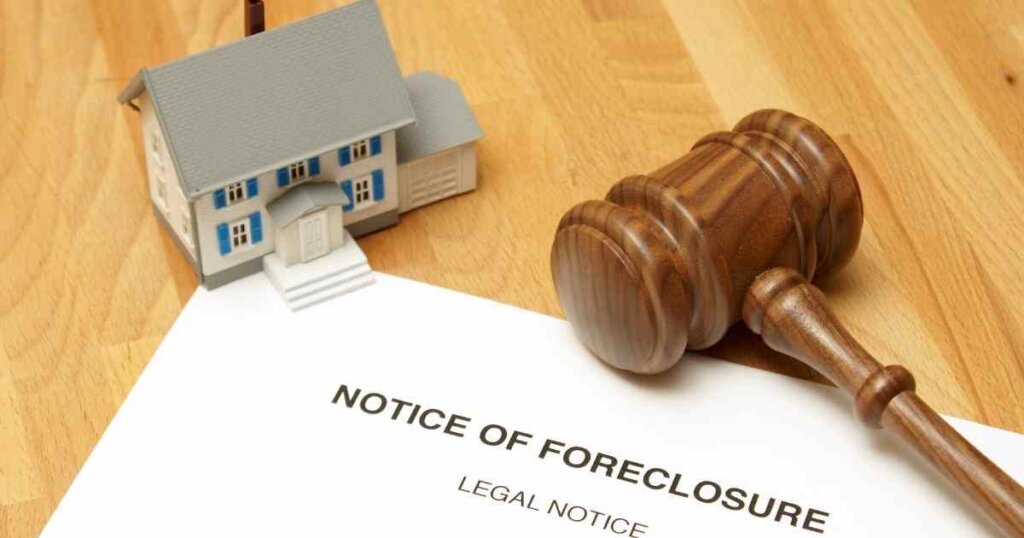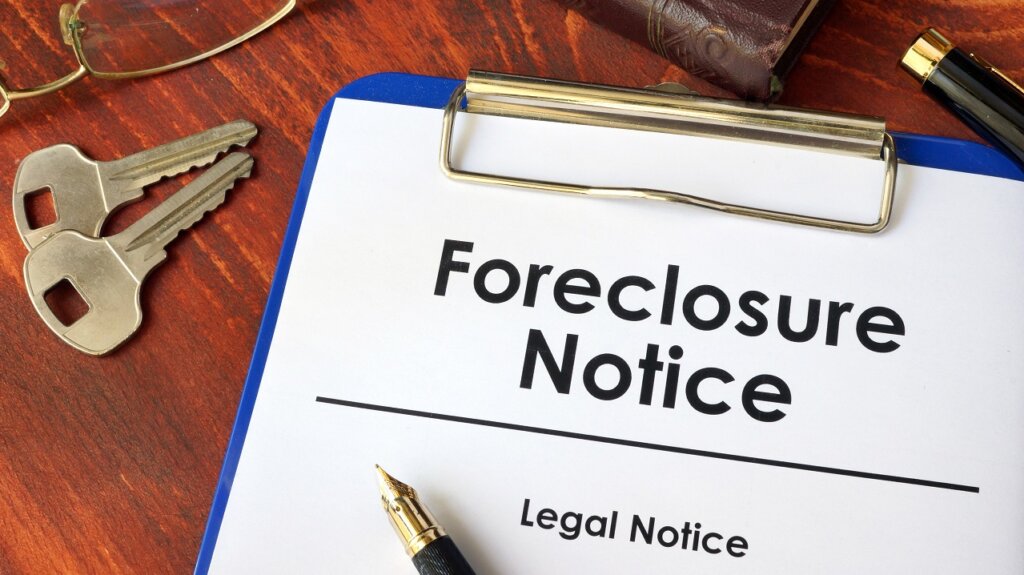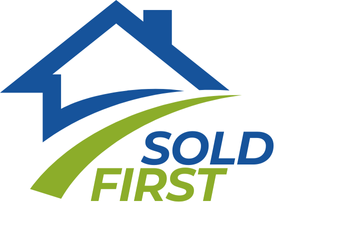Foreclosure Notice of Default – What Is It?

Introduction
If you’ve found yourself searching for “Foreclosure Notice of Default – What Is It?”, it’s likely you’re already feeling a sense of urgency, stress, and confusion. A foreclosure notice can be a terrifying reality, and understanding the terminology, steps, and potential outcomes is crucial for anyone facing it. At this point, you’re likely grappling with difficult decisions. Perhaps you’ve already received a Notice of Default, or maybe you’re simply trying to understand the situation before it escalates. Either way, your goal is clear: you’re looking for a way to handle this situation as quickly and smoothly as possible.
You might feel overwhelmed by the uncertainty of what this notice means for you. You may be asking yourself: What does a Notice of Default really mean? What options do I have to stop foreclosure? You likely want to know what your rights are, what steps you should take next, and—most importantly—how to avoid losing your home. Maybe you’ve already tried negotiating with the bank, but haven’t had much success. Or, you might be looking for alternatives to foreclosure that can offer you more control over the outcome.
In this article, I’ll break down everything you need to know about a Notice of Default, how it fits into the foreclosure process, and your best options moving forward. While we’ll focus on how you can avoid foreclosure through a variety of options, we’ll also touch on why selling your house for cash may be the fastest and most advantageous route.
What Is a Foreclosure Notice of Default?
A Foreclosure Notice of Default (NOD) is a legal document filed by your lender to begin the foreclosure process. This notice is sent when you fall behind on your mortgage payments. It’s the first official step a lender takes before moving forward with a full foreclosure. In most cases, a Notice of Default is sent after you’ve missed several months of payments (typically three or more).
What it Means for You: The Notice of Default doesn’t mean you’ve lost your home, but it’s a serious warning that you’re on the brink of foreclosure. The lender is giving you a formal notification that your account is in default, and they may soon initiate foreclosure proceedings if the debt isn’t settled. Understanding this notice is critical because it marks a key turning point in the process. At this stage, you still have options to stop foreclosure and potentially avoid a devastating financial hit.
How the Process Works

When a lender files a Notice of Default, they typically give you a specific window of time (usually around 90 days) to catch up on your missed payments or make arrangements. If this time period passes without resolution, the lender can then move forward with a foreclosure sale.
While receiving a Notice of Default doesn’t mean you’ve lost your home yet, it’s important to understand that your home is now officially at risk.
How to Address It: If you’re wondering how to handle a Notice of Default, it’s critical to take immediate action. One option is reaching out to a cash home buyer who can purchase your property quickly, allowing you to sell before the foreclosure process proceeds further.
What Happens After Receiving a Notice of Default?
Once a Notice of Default is filed, the clock begins ticking on the potential foreclosure process. But you still have a few options for stopping foreclosure before it gets to that point.
Mortgage Relief options from the Conference of State Bank Supervisors provide information on options available for homeowners facing foreclosure.
1. Pay Off the Default Amount:
The first option is to pay the overdue amount, along with any additional fees or penalties. While this may sound straightforward, the reality is that many people facing a Notice of Default are already financially strapped, making it difficult or even impossible to catch up on payments. In some cases, even if you can pay the overdue amount, it might not be enough to satisfy the lender’s requirements, especially if your mortgage has already been sent to collections.
2. Loan Modification:
Loan modification is a process where your lender agrees to change the terms of your loan to make it more affordable. While this may seem like a good option, it’s not always easy to secure. Lenders may be reluctant to modify loans, and the process can take time.
Explore loan modification programs at Bankrate, which provides more insights on how homeowners can apply for loan modifications.
3. Refinancing:
If you still have some equity in your home and good credit, you might be able to refinance the mortgage. Refinancing could help you lower your monthly payments and catch up on missed payments. However, this option also requires strong financials and may be difficult for homeowners already behind on payments.
4. Selling Your Home for Cash:
Another option is selling your home to a cash buyer. A cash sale can be completed quickly, and the sale proceeds can be used to pay off your mortgage, thus halting the foreclosure process. This option may be the most advantageous for many homeowners because it allows them to avoid the lengthy and damaging foreclosure process.
The Key Benefit of Selling Your Home for Cash: By selling your home for cash, you can settle your mortgage in full and prevent foreclosure from impacting your credit score. Cash sales are typically completed in less than 30 days, which can be a huge relief when you’re under the pressure of a looming foreclosure.
Potential Drawbacks: While selling your home for cash is often a fast solution, it may not always be the highest financial return, depending on the market conditions and your home’s value. However, if avoiding foreclosure and protecting your credit are your primary concerns, the benefits far outweigh the drawbacks.
For more information on how to stop foreclosure and get ahead of your debt, visit our comprehensive guide on How To Stop The Bank From Foreclosing On Your House.
Short Sale vs. Foreclosure: What’s the Difference?
If you’re facing foreclosure, you might be considering a short sale as an alternative. But what’s the difference between the two, and which is the better option?
1. Foreclosure:
A foreclosure is when the lender takes possession of your home because you haven’t paid your mortgage. The lender can then sell your home at a public auction, usually for far less than its market value. Foreclosure can seriously damage your credit and lead to long-term financial problems.
2. Short Sale:
A short sale, on the other hand, is when the lender agrees to let you sell your home for less than the mortgage balance. While it can also impact your credit score, a short sale is usually less damaging than foreclosure. Plus, if your lender agrees to the short sale, you may be able to negotiate a release from the remaining mortgage balance, meaning you won’t owe any deficiency after the sale.
Key Differences:
- A short sale allows you to sell your home before it goes to auction, while foreclosure results in your home being sold at a public auction.
- In a short sale, you may have a chance to negotiate the terms with the lender, including debt forgiveness.
- A foreclosure is typically far more damaging to your credit than a short sale.
If you’re still unsure whether a short sale is the right option, read our detailed article on Short Sale vs. Foreclosure – What’s the Difference? to learn more about the pros and cons of each option.
Can You Stop Foreclosure After a Notice of Default?
Yes, there are still ways to stop foreclosure after receiving a Notice of Default, but the sooner you act, the better your chances of finding a viable solution.
The Federal Trade Commission (FTC) provides advice on avoiding foreclosure scams, which is essential information for homeowners looking for legitimate ways to prevent foreclosure.
Options to Consider:
- Refinancing or Loan Modification: If you have good credit and sufficient equity, refinancing or modifying your loan can provide the financial relief you need.
- Cash Sale to a Home Buyer: Selling your home quickly for cash can be one of the most effective ways to stop the foreclosure process before it goes any further.
Remember, the longer you wait, the fewer options you’ll have available to you. If you’re at risk of foreclosure, time is of the essence.
The Financial and Emotional Impact of Foreclosure
The emotional and financial toll of foreclosure can be overwhelming. It’s not just about losing your home; it’s about the lasting impact on your financial future. Foreclosure can severely damage your credit score, making it harder to obtain a loan or mortgage in the future. You may also face additional costs, such as legal fees, moving expenses, and the loss of your equity.
Financial Costs:
The cost of foreclosure can extend far beyond losing your home. Foreclosure costs typically include:
- Court fees: Some states require judicial foreclosure, which means additional legal fees.
- Deficiency judgments: If your home is sold for less than what you owe, the lender might pursue a deficiency judgment for the remaining amount.
- Credit damage: A foreclosure can stay on your credit report for up to seven years, making it difficult to qualify for loans or other financial products.
Emotional Costs:
The emotional toll of foreclosure can’t be underestimated. The stress of losing your home, dealing with legal issues, and the uncertainty of the future can cause anxiety, depression, and a host of other mental health concerns.
Conclusion
While a foreclosure Notice of Default may seem like the end of the road, there are still options available to you. However, waiting too long can result in fewer choices and more financial strain. Selling your home for cash can be one of the most effective ways to stop foreclosure and move on with your life, free from the burden of debt.
At Sold First, we specialize in helping homeowners in distress by offering fast, fair cash offers for homes, no matter the condition. If you’re looking to avoid the stress and complications of a lengthy foreclosure process, consider selling your house to us today. We can help you navigate through this difficult time and provide a quick solution that allows you to move forward. Contact us now to receive your no-obligation cash offer.

